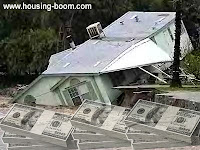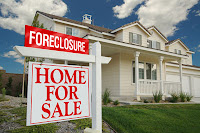 Housing sales are falling nationally as well as locally. Oregon is among the most distressed markets in the nation with Portland area housing prices declining 5.4% in February, making it the third worst major market in the country tracked by Core Logic. Standard and Poor’s reports that Portland has over a four year inventory of homes. Here.
Housing sales are falling nationally as well as locally. Oregon is among the most distressed markets in the nation with Portland area housing prices declining 5.4% in February, making it the third worst major market in the country tracked by Core Logic. Standard and Poor’s reports that Portland has over a four year inventory of homes. Here. Assuming a purchase of $350,000 or a median home currently (Here), the potential borrowers seeking a 90% loan (currently regulators and Congress are debating an 80% loan to value maximum, although it is likely this will be negotiated higher) then the following analysis would back into the necessary income to obtain a qualified residential mortgage through Fannie, Freddie or the FHA. The loan applied for would be $315,000 at a currently offered interest rate of ~4.75% on a 30 yr term. The Principal and Interest Payments would be $1,643/mo or $19,716/yr. Taxes based upon Leonetti’s analysis would be $5,065 per yr before the increase and $6,025 after. I am assuming insurance would run approximately $900/yr. So the total annual residential expenditures would be $25,681 and $26,641, respectively. This would mean that the borrower would be required to have a gross income of $91,718 and $95,146, respectively, based on a front end debt ratio of 28%. Notice that the income required jumps $3,428 or 3.7% because of the proposed increase in property tax. This means that fewer potential buyer/borrowers will qualify and will either be unable to finalize the purchase or be required to put more money down. Given that the median income in City-Data for median households with mortgages and apartment or rental households without mortgages is $74,824 and $44,788, respectively (Here), then such a tax increase will shrink an already small pool of potential home buyers who must rely upon financing to qualify.




